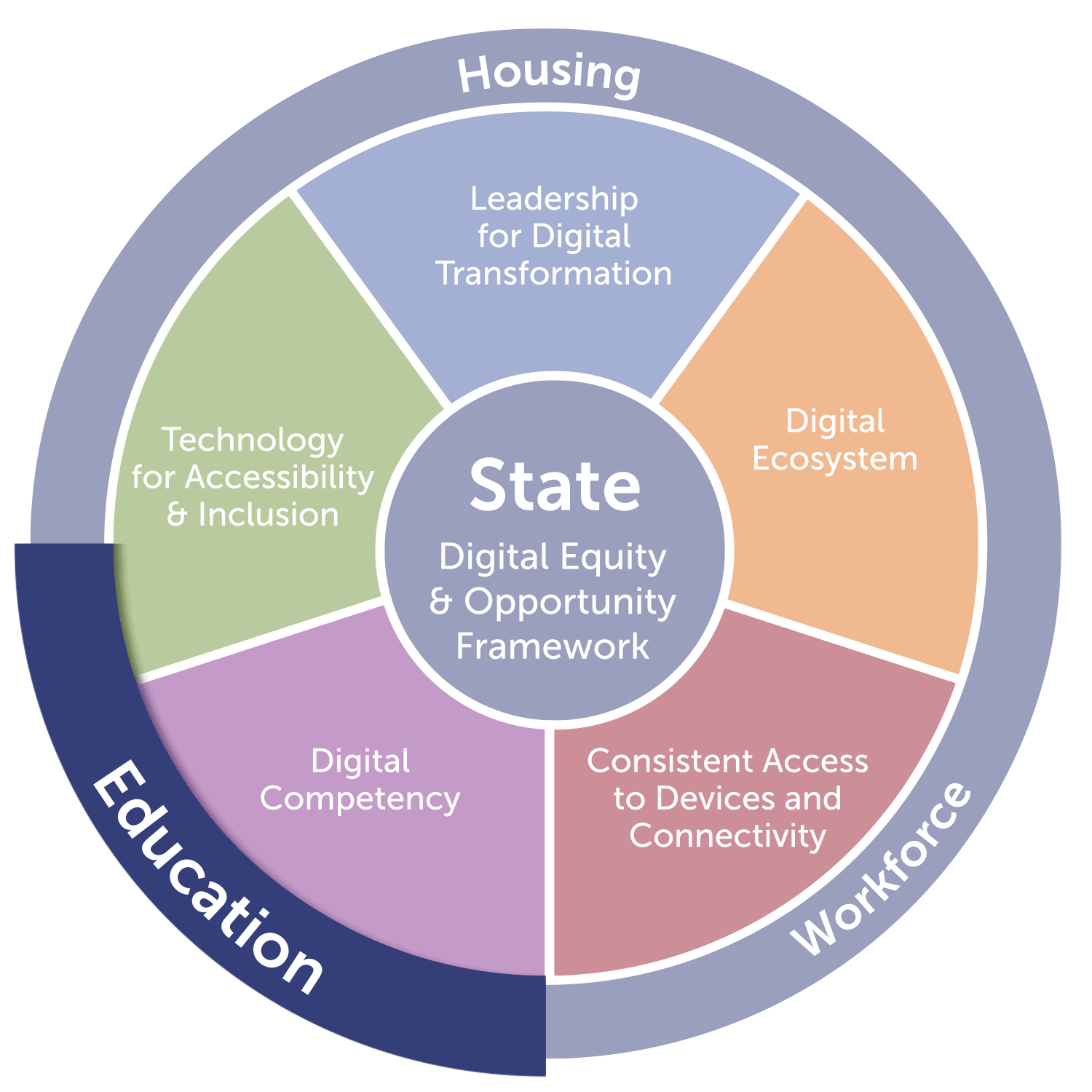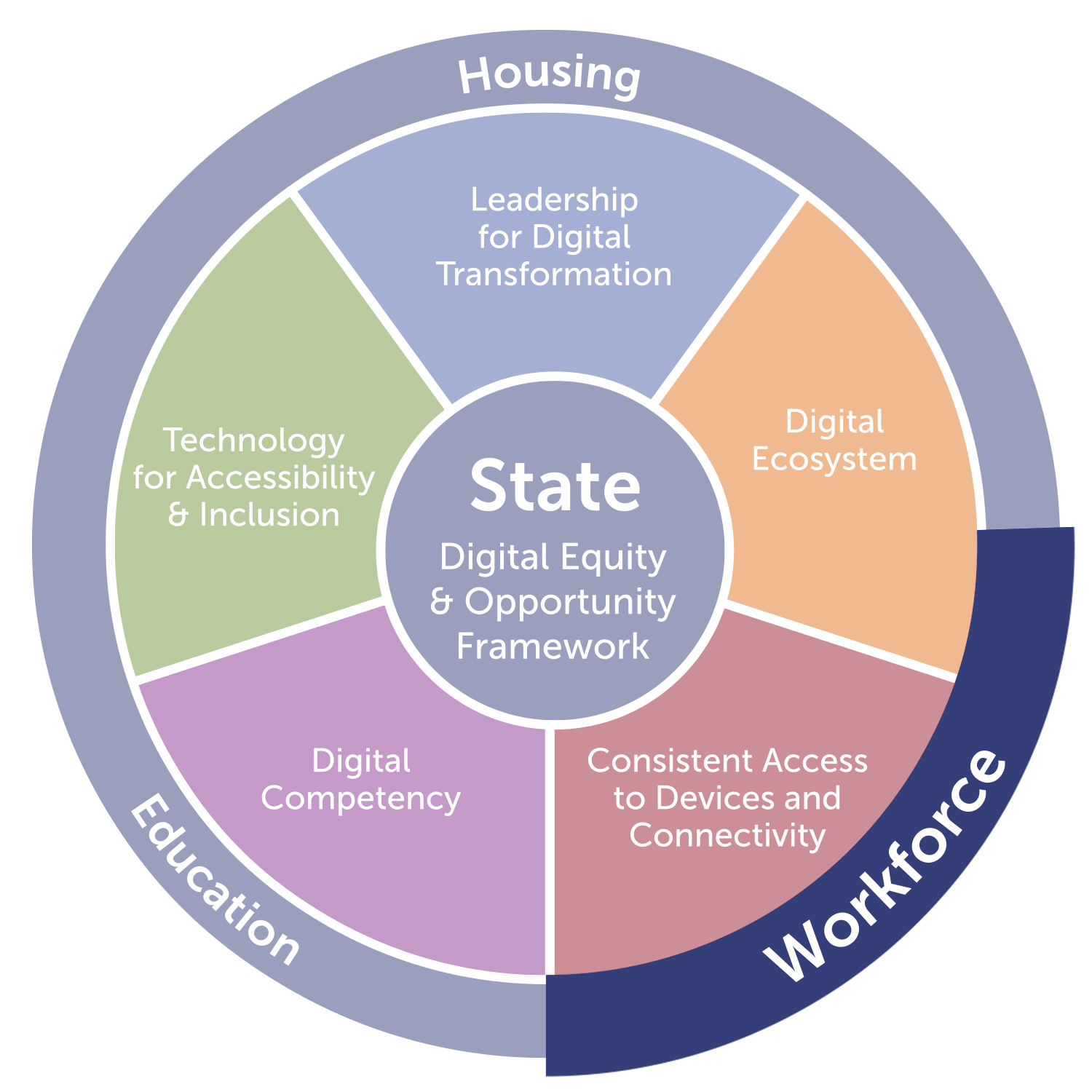The New York State Association for Affordable Housing (NYSAFAH), through their 501c3 HOUSE New York (HNY), launched the Digital Equity Initiative to bridge the digital divide for residents of affordable housing. This initiative targets underserved populations across New York, ensuring they have access to necessary digital resources.
The population of New York is 19.57 million, with 60.7% White, 15.21% Black or African American, 19.5% Hispanic or Latino, 8.65% Asian, and 0.42% Native American. Approximately 497,000 households occupy New York HUD units, which include public housing, Section 8, Housing Choice Vouchers, and other subsidized housing programs. Approximately 75 percent of these residents are people of color, with 40 percent being Hispanic or Latino.
Black and Latino New Yorkers are more likely to live in public housing and subsidized housing compared to White and Asian residents. Additionally, 43 percent of households in public housing and 35 percent of subsidized households include people with a disability, which is significantly higher than their representation in the city’s overall population.
The NYSAFAH/HNY launched a series of programs to create greater digital equity for residents of affordable housing. The program addressed the lack of high-speed internet infrastructure, affordability and access for education, and workforce participation in affordable and subsidized housing units.
The NYSAFAH/HNY Affordable Housing Broadband Initiative highlights several objectives in the Housing and Workforce Sectors of the State Digital Equity and Opportunity framework. The success of the initiative hinged on activating certain objectives in the domains of Leadership for Digital Transformation, Digital Ecosystem, and Consistent Access to Devices and Connectivity.

The initiative began with Leadership for Digital Transformation through the involvement of Congressman Jamaal Bowman and State Senator Shelley Mayer, both discussing the broadband issue in affordable housing and the role of the government in providing solutions. An Advisory Board of technical experts was convened to discuss how older affordable housing stock could be retrofitted to accommodate fiber technology, ensuring the delivery of high-speed internet to residents. This effort aimed to create a Digital Ecosystem by meeting the following objectives: providing Digital Infrastructure in Housing to ensure that all public and subsidized housing is equipped with high-speed internet, and launching Affordable Broadband Initiatives for Families in Affordable Housing.
Furthermore, a public/private partnership in the form of another Advisory Board, the Affordable Housing Broadband Initiative (AHBI), was launched with grant funds from the Ford Foundation, Schmidt Futures, HOUSE NY, and the Broadband Equity Partnership. This partnership aimed to create a roadmap for New York to:
 Workforce
WorkforceIn the next stage, NYSAFAH/HNY launched the Community Classroom Program in partnership with Wells Fargo to establish 11 remote learning sites in affordable housing buildings across New York. This highlights the domain of Consistent Access to Devices and Connectivity by activating the objective of Remote Learning and Work Hubs.
The NYSAFAH Digital Equity Initiative was launched in 2020 in response to the digital divide exacerbated by the COVID-19 pandemic. The strategy for implementing the initiative involved leveraging strong leadership and forming strategic partnerships to address broadband access in affordable housing. The process and execution included phased implementation starting with leadership engagement and technical advisory stages, followed by the establishment of partnerships and the launch of specific programs such as the Community Classroom Program in partnership with Wells Fargo.
The NYSAFAH Digital Equity Initiative has successfully enhanced digital access for residents in affordable housing across New York. Key outcomes include:
The initiative did not stop there. For Continuous Improvement and Sustainability, Governor Hochul established the $1 billion ConnectALL initiative in 2023, with $100 million dedicated to the Affordable Housing Connectivity Program. This program offers grant funds to landlords and owners of affordable housing to install or upgrade broadband infrastructure, enabling tenants to access high-quality broadband internet at an affordable rate. Additionally, plans for Inclusive Innovation involve engaging ISPs, nonprofit partners, property managers, and residents to leverage public-private partnerships, delivering on-site digital equity and device navigation services.